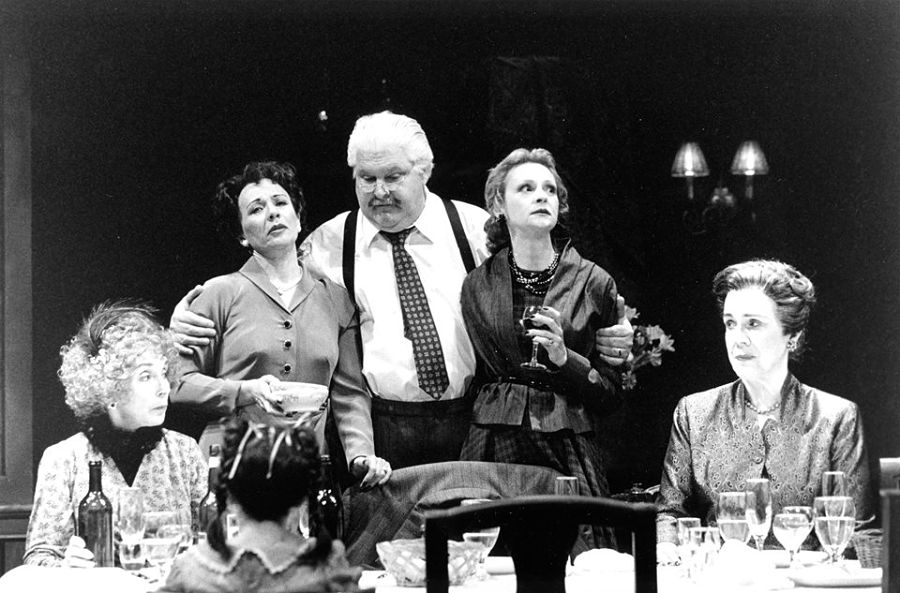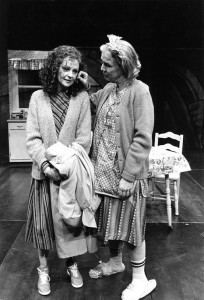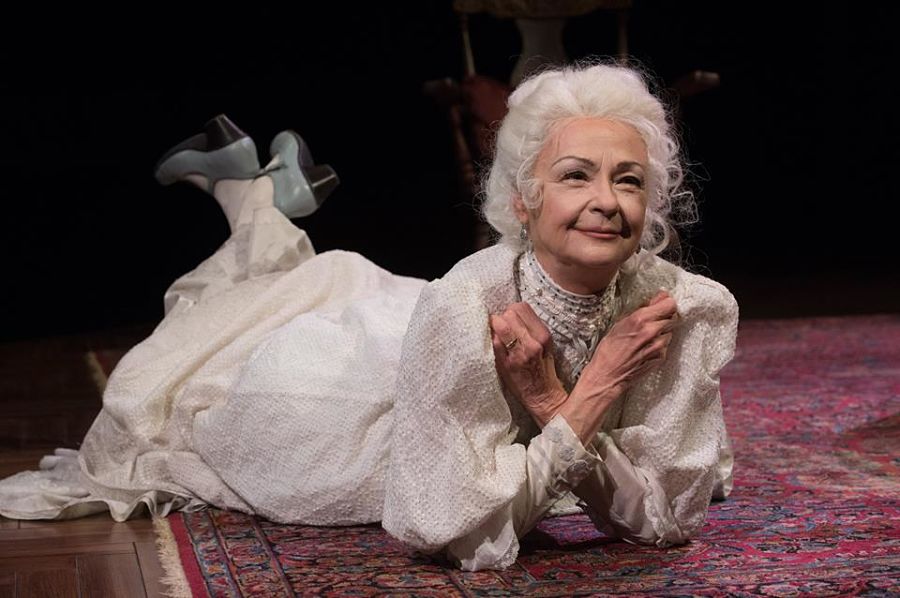Judith-Marie Bergan, who appeared for 16 seasons as a company member of the Oregon Shakespeare Festival after a successful TV career, died on Aug. 20 from cancer. The actor, playwright, and director Lillian Garrett-Groag was the author of Bergan's first play at OSF, 1997's The Magic Fire.
Many years ago, on a sub-freezing January afternoon in Minneapolis, I was walking to the Guthrie, where Judith-Marie Bergan was appearing in my play The Magic Fire (for about the fourth or fifth time), and, passing by the artist housing apartments, I happened on Judith’s husband João by the front steps, stomping around in the snow, blowing on frostbitten fingers, nose turning blue. When I asked him why he didn’t go inside, he said, “I can’t. She’s warming up for the show.”
And then I heard the familiar muffled noises through the double storm windows tightly shut against the cold, sounding at times like the gentle pasture lowing of a large—albeit friendly—farm animal, and at other times like the alarming shrieks of a highly irritated macaw. Yes, indeed, Judith-Marie was warming up for the 8 o’clock show. At 4 p.m. in the afternoon.
A few weeks ago her husband woke up in the middle of the night thinking she was moaning in pain, only to be informed, somewhat testily, that she was “warming up for her show,” with the implication that it was obvious and that she needed her sleep. It was a show to which she never went back. The role was Miss Havisham in Great Expectations at Oregon Shakes, and it was to be her last one. During her illness she continued working, in and out of consciousness, on past, present, and future roles, at one point looking for the misplaced cane she used for Miss Havisham, or planning for the upcoming roles in the next OSF season.
I have never seen anyone work harder than Judith. Exacting, tireless, meticulously obsessing over this or that detail in a role that she may have been doing for weeks, or one she had done years ago of which she had just now managed to detangle a knotty moment that had plagued her. Glamorous or not—and Judith embodied the very definition of glamour—leads, supporting roles, walk-ons all got the same attention and respect. All her performances, from the most outlandish to the simplest and most down-to-earth, all had the ring of truth. Like Maggie Smith, she managed to turn the outrageous into the most natural and inevitable thing in the world.
She didn’t care what she looked like onstage. Sometimes completely unrecognizable—and often extremely frightening—Judith was a serious beauty, as soignée and elegant in everyday life (and day-to-day rehearsals, to the extreme annoyance of the rest of us, who had barely managed to run a comb through our hair and show up on time) as a model on the runway. To a friend having remarked she had never seen Judith-Marie without makeup, her husband replied he hadn’t either.
Indeed, my dearest memory of her is spending a two-and-a-half hour lunch at the Café Moustache in West Hollywood talking about makeup, most particularly a new blush on at the time called “Honey Umber.” We were mortified when we computed the time against the subject matter, and never admitted to it except to a few intimates who were, nevertheless, appalled and would never let us forget it. Mercifully—since our reputation for frivolity was dangerously close to irretrievable—we had graduated to Elena Ferrante novels, Velázquez, and Parsifal the last time we talked for a long time on the phone.

Judith, or JMB, as we affectionately called her, came to the Oregon Shakespeare Festival in 1997 for the first Magic Fire and never left. After a highly successful career in television, she fell in love with one of the few remaining theatres in the country where you can play a grande dame and a barkeep, a hooker and a nun, a refugee and a socialite, a drug addict a president, Mother Teresa or a member of the KKK, a mental patient, a doctor, a man, a woman, a child, a dog…all back to back. She shared the boards with spectacular actors of the caliber of Derrick Weeden, John Pribyl, Robynn Rodriguez, Vilma Silva, Richard Howard, Ken Albers, Dee Maaske, Anthony Heald, Demetra Pittman, Robin Nordli, Michael Elich, Cate Davis—too many to name them all here. The words she spoke for a living, the words she felt were her job to put out there into the dark to audiences who came from all over the world to see, hear, experience theatre actors do their thing, tell them stories, make them laugh or think, are words that women in Hollywood—especially women of a certain age—never get to say today. And in Ashland you get to have your morning coffee looking at a doe and her fawn through your kitchen window. Eating your tulips. Paradise.

She thought so, and stayed, albeit doing forays across the country to the Guthrie, the Old Globe, Kennedy Center, Yale Rep, and Chicago Shakespeare for plays and roles she wanted to do, for which she was generously “sprung” by OSF. But Ashland had become home, a place she was deeply respected, comforted, cherished, and dearly loved to the very end.
JMB, as I told you that last night on the phone: I know we had discussed the value of a carefully placed dramatic exit, but this one was a tad over the top. Couldn’t you have come back and tried it in…oh, let’s say, another 30 years or so?


